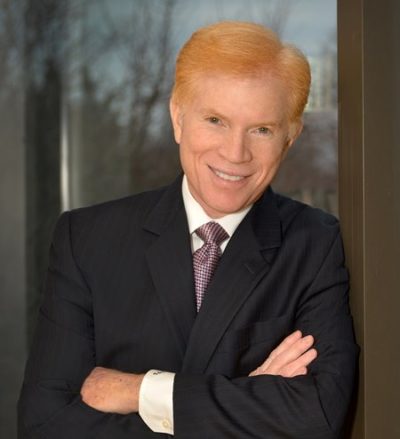
Gary Phillip Zola is the Executive Director of The Jacob Rader Marcus Center of the American Jewish Archives (AJA) and the Edward M. Ackerman Family Distinguished Professor of the American Jewish Experience & Reform Jewish History at Hebrew Union College-Jewish Institute of Religion (HUC-JIR) in Cincinnati. The AJA is the world’s largest free-standing research center dedicated solely to the study of the American Jewish experience. He received both his rabbinic ordination (1982) and his Ph.D. in American Jewish History (1991) from HUC-JIR.
Professor Zola became the AJA’s second director in 1998, succeeding his teacher and mentor, Professor Jacob Rader Marcus (1896-1995), the prodigious scholar who first defined the field of American Jewish history. It was Marcus who founded the AJA in 1947 and served as its director until his death in 1995. Under Professor Zola’s leadership, the AJA’s renowned collection has grown and the center’s dynamic array of programs is now housed in a world-class complex of three interconnected structures including the newly erected Edwin A. Malloy Education Building and the Jewish Foundation of Cincinnati’s International Learning Center. Zola is widely recognized by colleagues as an innovator in his field, who has enlarged the public’s access to the AJA’s holdings, expanded The Marcus Center’s programmatic activities, and encouraged the institution to make use of 21st century technologies.
Professor Zola is also known as a historian of American Jewry who specializes in the 19th century American Judaism and the history of American Reform Judaism. Since 1998, Zola has been the editor of The Marcus Center’s award-winning biannual publication, The American Jewish Archives Journal. His own published volumes include We Called Him Rabbi Abraham: Lincoln and American Jewry (Southern Illinois University Press, 2014); American Jewish History: A Primary Source Reader (co-edited by Marc Dollinger and published by Brandeis University Press, 2014); The Americanization of the Jewish Prayer Book and The Liturgical Development of Congregation Ahawath Chesed, New York City (New York: Central Synagogue, 2008); A Place of Our Own: The Rise of Reform Jewish Camping in America (co-edited with Michael M. Lorge and published by the University of Alabama Press, 2006); The Dynamics of American Jewish History: Jacob Rader Marcus’s Essays on American Jewry (Brandeis University Press, 2004); Women Rabbis: Exploration and Celebration (HUC-JIR Alumni Press, 1996) and Isaac Harby of Charleston (the University of Alabama Press, 1994), a major biographical study on the life of one of the founders of the first organized effort to reform Judaism in the United States of America. In addition to these volumes, Zola has published dozens of scholarly articles and book reviews.
“AT WHAT PRICE AMOS”: American Jews and the Civil Rights Movement, 1950-1970
The story of Jewish participation in the Civil Rights movement during the 1950s and 1960s has received considerable scholarly attention. It is a well-known fact that American Jews participated in the campaign for Civil Rights as Freedom Riders, Marchers, organizational participants, legal advisors, financial supporters, and so forth. The role of Jews living in the American South played during this same period is a far more obscure topic. Southern Jews found themselves caught on the horns of a dilemma. Even though many Jews in the South were emotionally inclined to support Civil Rights activism, the frightfully hostile social opposition in the South persuaded many to remain quiet. With the aid of rare audio-visual materials from the American Jewish Archives in Cincinnati, Professor Gary P. Zola of Hebrew Union College will examine and illustrate the various ways in which Southern Jews responded to the complex contextual realities they faced.
TO SCHEDULE A PRESENTATION , PLEASE CONTACT:
Gary Zola
GZola@HUC.edu
513-487-3000
Speaker Applications
The Ohio Humanities Speakers Bureau is closed for the rest of 2024 and is not currently accepting applications. Check back later in the year for information about the 2025 Bureau!
Interested organizations can still book talks from our United We Stand Speakers Bureau.
Speaker Fee Structure
Non-profit organizations with an annual budget under $150,000 pay a fee of $50.00.
Non-profit organizations with an annual budget over $150,000 pay a fee of $250.00.
Schools (including colleges or universities) and corporate or private entities pay a fee of $400.00.
For any questions, please contact Program Officer Melvin Barnes at mbarnes@ohiohumanities.org.
